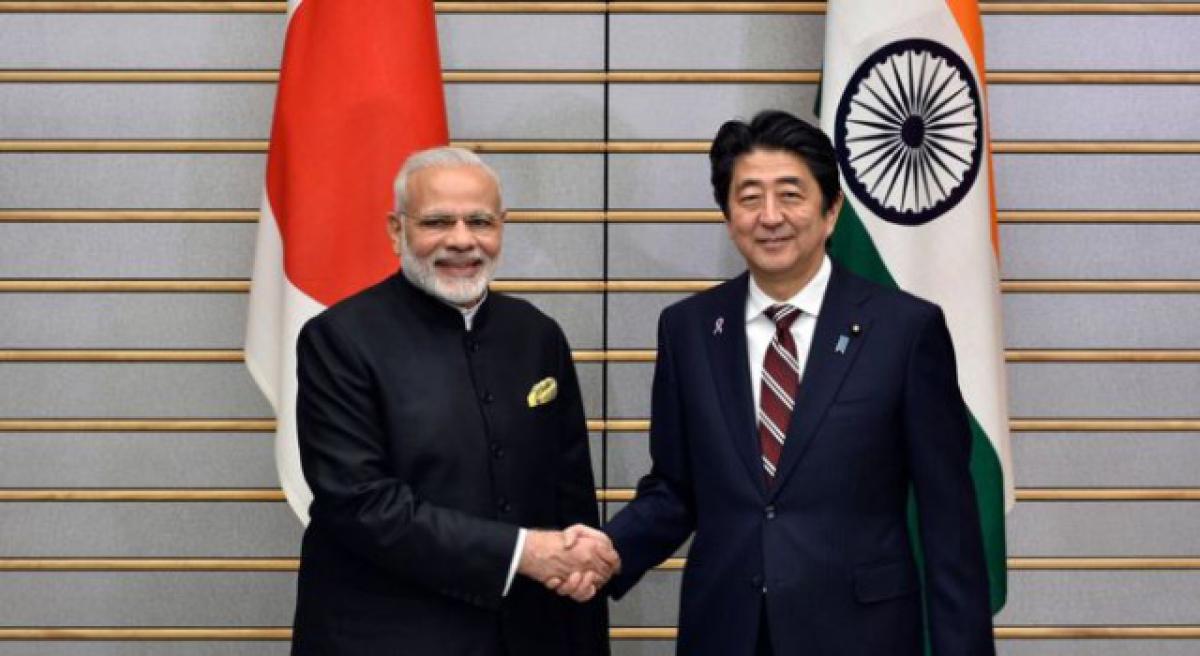Live
- Gold rates in Visakhapatnam slashes, check the rates on 19 April 2024
- Filing of nomination commences
- Gold rates in Vijayawada slashes, check the rates on 19 April 2024
- Gold rates in Hyderabad slashes, check the rates on 19 April 2024
- Adireddy Srinivas files nomination
- Hyderabad: 42 candidates file nominations on first day
- Sharmila accuses CM of living in ivory tower
- Gurumoorthy appears to be ahead of pack
- CM bus yatra draws huge crowds
- From a doctor to a politician, Thanuja Rani looks forward to serve society
Just In

The Diet on June 7 endorsed the controversial Japan-India civil nuclear cooperation agreement that will allow the nation’s firms to export nuclear materials and technology to India for non-military purposes.
The Diet on June 7 endorsed the controversial Japan-India civil nuclear cooperation agreement that will allow the nation’s firms to export nuclear materials and technology to India for non-military purposes.
Signed by Prime Minister Shinzo Abe and Narendra Modi in November last year, the agreement passed a plenary session of the Upper House with a vote of 151 to 87. The agreement is set to take effect early July.
The move is in line with Abe’s initiative to help Japanese companies export nonmilitary nuclear technology to other countries, writes Japantimes.org.
The accord follows a landmark 2006 US-India nuclear pact, in which Washington agreed to provide nuclear technology while New Delhi designated 14 of its 22 nuclear reactors for civil use.
India has agreed to allow the International Atomic Energy Agency (IAEA) to inspect the nonmilitary reactors, it adds. Prime Minister Narendra Modi during his visit to Japan in November 2016 signed a deal with his counterpart Shinzo Abe on nuclear energy.
Though deal has been in discussion between the two countries for six years before it was signed, the 2011 Fukushima nuclear disaster delayed it. This is the first time that Japan signed such a deal with a non-signatory of Non-Proliferation Treaty (NPT).
The deal gives Japan to supply nuclear reactors, fuel and technology, to India. This deal is to help in India build the six nuclear reactors planned in Delhi, to be completed by 2032. The bilateral framework stipulates that the materials and technology supplied by Japan may only be used for peaceful purposes.
It also requires India to accept inspections by the International Atomic Energy Agency. The deal has a separate "nullification clause" that will cancel the pact if India conducts a nuclear test - a guarantee for Japan to limit its technology for peaceful and commercial purposes.
India is also the first country that has not signed the Non-Proliferation Treaty to have such an agreement with Japan, where two atomic bombs were detonated during World War ll. But other nations have signed civil nuclear deals with India, including France, Australia and the United States, which inked a similar deal a decade ago.

© 2024 Hyderabad Media House Limited/The Hans India. All rights reserved. Powered by hocalwire.com







